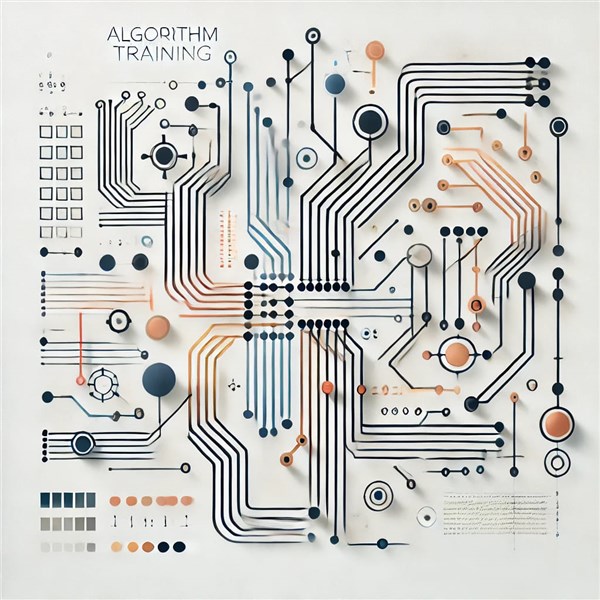
In the world of software engineering, data science, and AI, there's one foundational element that sets the best apart from the rest — algorithmic thinking. Whether you're an aspiring coder, a data analyst, or a seasoned developer, the ability to understand and implement algorithms effectively is critical to solving problems efficiently and writing scalable, optimized code.
That's where algorithm training comes in.
This specialized form of technical education is more than just memorizing patterns — it’s about building a problem-solving mindset, mastering data structures, and learning to think like a computer scientist. Whether you're preparing for coding interviews, working on backend systems, or developing AI models, algorithm training gives you the core toolkit you need to succeed.
In this blog, we’ll dive into the top skills you’ll gain from algorithm training, how they apply in real-world scenarios, and why every tech professional should take this learning seriously.
Top Skills You’ll Gain from Algorithm Training
🔹 1. Analytical Problem-Solving
What You’ll Learn:
- Breaking down complex problems into smaller, manageable parts
- Applying algorithmic approaches to identify optimal solutions
- Developing test cases to validate logic and edge cases
- Practicing through coding challenges on platforms like LeetCode, HackerRank, and Codeforces
Why It Matters:
At its core, algorithm training teaches you how to think critically and logically under constraints. This is a must-have skill in everything from debugging code to designing scalable systems and building AI pipelines.
🔹 2. Mastery of Data Structures
What You’ll Learn:
- Arrays, Linked Lists, Stacks, Queues
- Hash Tables, Trees, Graphs, Heaps
- Advanced structures like Tries, Union-Find, Segment Trees
- Choosing the right structure for the problem at hand
Why It Matters:
Algorithms and data structures go hand in hand. Choosing the wrong structure can ruin performance, while the right one can simplify even the toughest problems. Mastery of these foundations is essential for working with large datasets, building search engines, or managing databases.
🔹 3. Time and Space Complexity Analysis
What You’ll Learn:
- Big O, Big Theta, and Big Omega notation
- Calculating time complexity step by step
- Space efficiency and memory trade-offs
- Identifying bottlenecks in your code
Why It Matters:
Efficient code is not just clean — it’s fast and scalable. By learning how to analyze algorithmic complexity, you can design systems that handle millions of users or large-scale computations without breaking under load.
🔹 4. Recursive Thinking and Divide & Conquer
What You’ll Learn:
- Writing recursive functions cleanly and safely
- Understanding base cases and recursive calls
- Using divide-and-conquer strategies (e.g., Merge Sort, Binary Search)
- Debugging recursion using stack trace analysis
Why It Matters:
Many elegant algorithmic solutions require recursive thinking, especially in tree or graph-related problems. Algorithm training helps you think in layers, opening the door to solving more abstract and complex challenges.
🔹 5. Dynamic Programming and Memoization
What You’ll Learn:
- Recognizing overlapping subproblems
- Building DP tables (bottom-up) and recursion + memoization (top-down)
- Common patterns: 0/1 Knapsack, Longest Common Subsequence, Coin Change
- Optimizing space and time in recursive-heavy tasks
Why It Matters:
Dynamic programming is the Achilles heel of most interviewees — but once mastered, it unlocks new levels of coding confidence. It's especially critical in optimization problems found in AI, operations research, and system design.
🔹 6. Graph Theory and Traversals
What You’ll Learn:
- Implementing Depth-First Search (DFS) and Breadth-First Search (BFS)
- Working with adjacency lists and matrices
- Shortest path algorithms (Dijkstra’s, Bellman-Ford, Floyd-Warshall)
- Graph cycles, connectivity, and traversal applications
Why It Matters:
Graphs model everything from social networks and supply chains to routing algorithms and dependency management. A solid grip on graph theory from algorithm training means you can build smarter, more connected systems.
🔹 7. Algorithm Optimization Techniques
What You’ll Learn:
- Greedy algorithms and when they work
- Bit manipulation and number theory tricks
- Sliding window, two-pointer, and prefix sum techniques
- Reducing time complexity from exponential to polynomial
Why It Matters:
Being able to optimize brute-force solutions into something efficient is a career-defining skill. Optimization is especially important in real-time systems, gaming, financial modeling, and machine learning pipelines.
🔹 8. Technical Interview Preparedness
What You’ll Learn:
- Solving problems under time constraints
- Explaining your approach with clarity and confidence
- Whiteboarding, coding challenges, and mock interviews
- Systematically approaching unknown problems
Why It Matters:
Most top-tier tech companies — Google, Amazon, Meta, etc. — rely heavily on algorithmic interviews. Completing algorithm training dramatically increases your chances of landing those roles by giving you the tools and confidence to perform under pressure.
🔹 9. Competitive Programming Mindset
What You’ll Learn:
- Tackling time-limited challenges
- Competing in contests (Codeforces, AtCoder, etc.)
- Writing clean, bug-free code quickly
- Learning from test failures and performance constraints
Why It Matters:
Competitive programming is like gym for your brain. Even if you don’t plan to compete professionally, algorithm training inspired by these methods sharpens your coding instincts and helps you perform at a high level in real-world scenarios.
🔹 10. Confidence and Coding Fluency
What You’ll Learn:
- Writing reusable, readable code
- Thinking in algorithms instead of ad-hoc solutions
- Debugging with a structured approach
- Applying your skills to personal projects and production systems
Why It Matters:
With fluency comes freedom. The confidence you gain from algorithm training allows you to take on more complex projects, contribute to open-source, or pass certification exams and interviews with ease.
👩💻 Who Should Enroll in Algorithm Training?
- Computer science students and engineering graduates
- Aspiring software developers and backend engineers
- Data scientists and ML engineers needing stronger foundations
- Interview candidates targeting tech giants
- Competitive programmers and coding contest participants
📈 Career Roles That Benefit from Algorithm Training
|
Role |
Why Algorithm Training Helps |
|---|---|
|
Software Engineer |
Problem-solving and system optimization |
|
Backend Developer |
Efficient logic, memory management, and scalability |
|
Data Scientist/Engineer |
Graphs, dynamic programming, and data flow modeling |
|
Machine Learning Engineer |
Recursion, complexity, and training/inference performance |
|
Tech Interview Candidate |
Coding challenge and whiteboard success |
|
CTF/Competitive Coder |
Fast implementation and sharp logic under pressure |
Why Choose Koenig Solutions for Algorithm Training?
When it comes to algorithm training, Koenig Solutions is a leading IT training company providing certifications in top technology courses, including algorithm training. Here are some reasons why you should choose Koenig Solutions:
- Experienced Trainers: At Koenig Solutions, you will learn from experienced trainers who are experts in the field. They will guide you through the complexities of algorithms with ease.
- Flexible Learning: Koenig Solutions offers flexible learning options, allowing you to learn at your own pace and convenience.
- Certification: After completing the training, you will receive a certification from Koenig Solutions, which is recognized by top IT companies worldwide.
- Practical Learning: Koenig Solutions believes in practical learning. During the training, you will get plenty of opportunities to work on real-world problems.
For more details, visit Koenig Solutions.
✅ Final Takeaway
Algorithm training isn’t just for exams or interviews — it’s a mindset shift. It trains you to think deeply, analyze clearly, and code efficiently. Whether you’re optimizing a machine learning model or building an API backend, the skills you gain through algorithm training are universally valuable.
With a solid algorithmic foundation, you’ll be ready to tackle technical challenges with confidence, build systems that scale, and unlock career opportunities across software engineering, data science, and beyond.







COMMENT